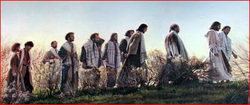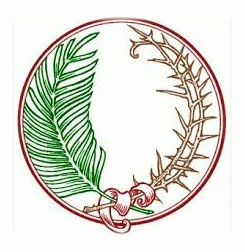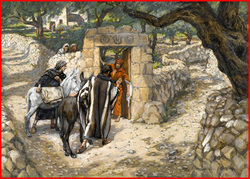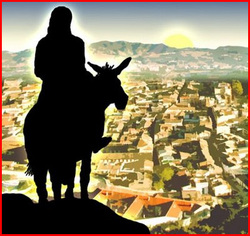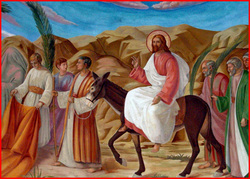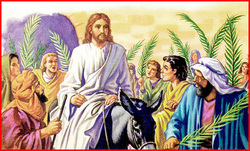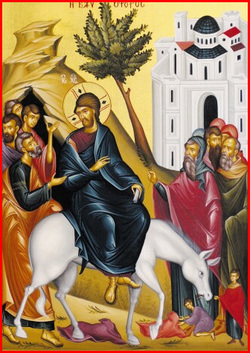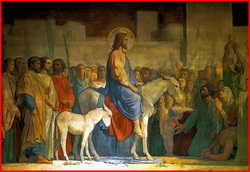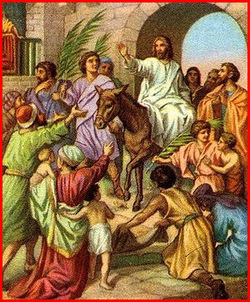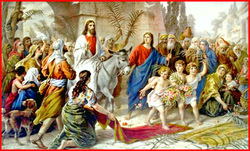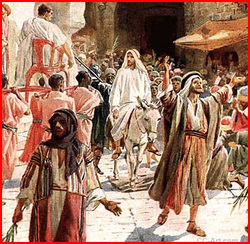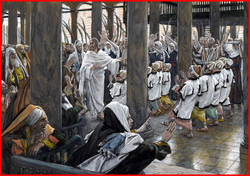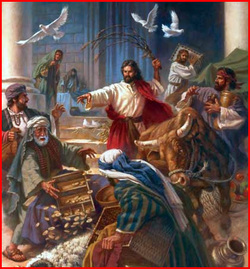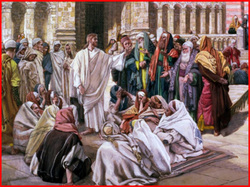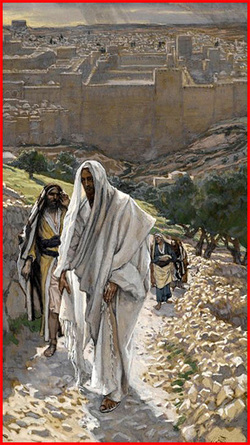| Devotion to Our Lady |
|
- Homepage
-
Daily Thoughts
- 2023 October Daily Thoughts
- Daily Thoughts Lent 2020
- Daily Thoughts for Advent 2019
- Daily Thoughts for October 2019
- Daily Thoughts for September 2019
- Daily Thoughts for August 2019
- Daily Thoughts for July
- Daily Thoughts for June
- Daily Thoughts for Easter 2019
- Daily Thoughts for Lent 2019
- Daily Thoughts for Christmas
- Daily Thoughts Easter 2022
- Consecration
- Easter Season
-
Spiritual Life
- Holy Mass Explained
- First Friday Devotions
- First Saturday Devotions
- The Mercy of God
- Vocations
- The Path Everyone Must Walk >
- Gift of Failure
- Halloween or Hell-O-Ween?
- Ignatian Spiritual Exercises >
- Meditation is Soul-Saving
- Spiritual Communion
- Miraculous Medal
- Enrollment in Miraculous Medal
- St. Benedict Medal
- Holy Water
- Advice on Prayer
- Your Daily Mary
-
Prayers
- September Devotions
- Seven Sorrows of Our Lady
-
Novenas
>
- NV-Help of Christians
- NV-Nativity of Our Lady
- NV-Seven Sorrows
- NV- Sorrowful Heart
- NV-Pope St Pius X
- NV-La Salette
- NV-St Michael Archangel
- NV-Immaculate Heart
- NV-Assumption
- NV-Novena for Fathers
- NV-Novena for Your Mother
- NV-St Raphael Archangel
- NV-Souls in Purgatory
- NV-All Saints Day
- NV-Christ the King
- NV-Divine Motherhood
- NV-Guardian Angels
- NV-Rosary
- NV-Mirac Med
- NV- Imm Conc
- NV - Guadalupe
- NV - Nativity of Jesus
- NV-Epiphany
- NV-OL Good Success
- NV-Lourdes
- NV-St Patrick
- NV-St Joseph
- NV-Annunciation
- NV-St Louis de Montfort
- NV-OL Good Counsel
- NV-Last Supper
- NV-Passion
- NV-Pentecost
- NV-Ascension
- NV-Sacred Heart
- NV-Sacred Heart & Perpetual Help
- NV-Corpus Christi
- NV-OL of Perpetual Help
- NV-Queenship BVM
- NV-OL of Mount Carmel
- NV-St Mary Magdalen
- NV- Im Hrt
- August Devotions to IHM
- Immaculate Heart of Mary
- Litany of Dependence
- Prayers to St Mary Magdalen
- Prayers in Times of Sickness Disease & Danger
- Holy Souls in Purgatory
- Meditations on the Litany of Our Lady
- Special Feast Days
- Prayers to Mary (Mon-Sun)
- Litanies to Our Lady >
- Various & Special Needs
- Our Lady of the Rosary
- Our Lady of Mt. Carmel
- Our Lady of Perpetual Help
- Our Lady of Guadalupe
- Other titles of Our Lady
-
Rosary
- Downloads
-
Holy Week
- Last Seven Words of Jesus >
- Characters of Passion >
- The Last Days of Christ
- Before Palm Sunday
- Palm Sunday
- Monday in Holy Week
- Tuesday in Holy Week
- Wednesday in Holy Week
- Holy Thursday (Last Supper)
- Holy Thursday (Agony & Arrest)
- Night Vigil with Christ
- Good Friday (Pilate & Herod)
- Good Friday (Way of Cross & Crucifixion)
- Saturday in Holy Week
-
Lent
- Ideas for Lent
- Daily Lenten Planner
- Daily Lenten Liturgy
- From Cold to Hot
- Lent with Aquinas
- Lent with Dom Gueranger
- Virtues for Lent
- History of Penance
- How Expensive is Sin?
- Confession of Sins
- Letter to Friends of the Cross
- Sermons for Lent
- Stations of the Cross >
- Lenten Prayers
- 7 Penitential Psalms
- Lenten Psalms SUN
- Lenten Psalms MON
- Lenten Psalms TUE
- Lenten Psalms WED
- Lenten Psalms THU
- Lenten Psalms FRI
- Lenten Psalms SAT
- Lenten Laughs
- Septuagesima
-
Christmas
- Epiphany Explained
- Suggestions for Christmas
- Food For Thought
- Christmas with Aquinas
- Christmas with Dom Gueranger
- Christmas Prayers
- Candles & Candlemas
- Christmas Sermons
- Christmas Prayers SUN
- Christmas Prayers MON
- Christmas Prayers TUE
- Christmas Prayers WED
- Christmas Prayers THU
- Christmas Prayers FRI
- Christmas Prayers SAT
- Twelve Days of Christmas >
-
Advent Journey
- Purgatory
- Christ the King
- Legion of Mary
- Scapular
- Sacred Heart
-
Saints
-
Martyrs for the Faith
>
- Your Daily Martyr >
- All 365 Days of Martyrs
- Cristeros
- St Valentine & Valentine's Day
- Martyrs--Thomas Becket
- Martyrs--John the Apostle
- Holy Machabees
- Age of Martyrdom
- Carmelites of Compiegne
- Martyrs--Peter & Paul
- Martyrs--John the Baptist
- Martyrs--Andrew
- Martyrs--James the Great
- Martyrs--North American
- Martyrs--Seven Holy Sleepers
- Martyrs--Afra
- School of Martyrdom
- Martyrs--Christina
- Desert Saints >
- Saints for Sinners >
- Saints of Mary >
- History of All Saints Day
-
Martyrs for the Faith
>
- Precious Blood
- Holy Ghost
- Synod 2023
-
Catechism
- Catechism Lesson 1
- Catechism Lesson 2
- Catechism Lesson 3
- Catechism Lesson 4
- Catechism Lesson 5
- Catechism Lesson 6
- Catechism Lesson 7
- Catechism Lesson 8
- Catechism Lesson 9
- Catechism Lesson 10
- Catechism Lesson 11
- Catechism Lesson 12
- Catechism Lesson 13
- Catechism Lesson 14
- Catechism Lesson 15
- Catechism Lesson 16
- Catechism Lesson 17
- Catechism Lesson 18
- Catechism Lesson 19
- Catechism Lesson 20
- Catechism Lesson 21
- Catechism Lesson 22
- Bible Study
-
Calendar
- Miracles
- Apparitions
- Shrines
- Prophecies
- Angels Homepage
- Hell
-
Church Crisis
- Conspiracy Theories
- Amazon Synod 2019 >
- Liberalism & Modernism
- Modernism--Encyclical Pascendi
- Modernism & Children
- Modernism--Documents
- The Francis Pages
- Church Enemies on Francis
- Francis Quotes
- Amoris Laetitia Critique
- Danger of Ignorance (Pius X)
- Restore all In Christ (Pius X)
- Catholic Action (Pius X)
- Another TITANIC Disaster?
- The "Errors of Russia"
- CRISIS PRAYERS
- Election Novena 2024
- The Anger Room
- War Zone
- Life of Mary
- Spiritual Gym
- Stupidity
- Coronavirus and Catholicism
- History & Facts
- Books
- Catholic Family
- Children
- Daily Quiz
-
Novena Church & Pope
- Day 01 Church-Pope Novena
- Day 02 Church-Pope Novena
- Day 03 Church-Pope Novena
- Day 04 Church-Pope Novena
- Day 05 Church-Pope Novena
- Day 06 Church-Pope Novena
- Day 07 Church-Pope Novena
- Day 08 Church-Pope Novena
- Day 09 Church-Pope Novena
- Day 10 Church-Pope Novena
- Day 11 Church-Pope Novena
- Day 12 Church-Pope Novena
- Day 13 Church-Pope Novena
- Day 14 Church-Pope Novena
- Day 15 Church-Pope Novena
- Day 16 Church-Pope Novena
- Day 17 Church-Pope Novena
- Day 18 Church-Pope Novena
- Day 19 Church-Pope Novena
- Day 20 Church-Pope Novena
- Day 21 Church-Pope Novena
- Day 22 Church-Pope Novena
- Day 23 Church-Pope Novena
- Day 24 Church-Pope Novena
- Day 25 Church-Pope Novena
- Day 26 Church-Pope Novena
- Day 27 Church-Pope Novena
- Day 28 Church-Pope Novena
- Day 29 Church-Pope Novena
- Day 30 Church-Pope Novena
- Day 31 Church-Pope Novena
- Day 32 Church-Pope Novena
- Day 33 Church-Pope Novena
- Day 34 Church-Pope Novena
- Day 35 Church-Pope Novena
- Day 36 Church-Pope Novena
- Day 37 Church-Pope Novena
- Day 38 Church-Pope Novena
- Day 39 Church-Pope Novena
- Day 40 Church-Pope Novena
- Day 41 Church-Pope Novena
- Day 42 Church-Pope Novena
- Day 43 Church-Pope Novena
- Day 44 Church-Pope Novena
- Day 45 Church-Pope Novena
- Day 46 Church-Pope Novena
- Day 47 Church-Pope Novena
- Day 48 Church-Pope Novena
- Day 49 Church-Pope Novena
- Day 50 Church-Pope Novena
- Day 51 Church-Pope Novena
- Day 52 Church-Pope Novena
- Day 53 Church-Pope Novena
- Day 54 Church-Pope Novena
- Penance Novena
- Daily WeAtheR Forecast
The Greatest and Most Important Week in the Church's Liturgical Year
CLICK ON ANY HOLY WEEK LINK BELOW
Also lots of LENTEN & HOLY WEEK DOWNLOADS on the downloads page (click here)
LITURGICAL PRAYERS FOR EACH DAY OF THE WEEK DURING LENT
| Sundays of Lent | Mondays of Lent | Tuesdays of Lent | Wednesdays of Lent | Thursdays of Lent | Fridays of Lent | Saturdays of Lent |
HOLY WEEK PAGES
| Daily Thoughts | Holy Week Main Page | Before Palm Sunday | Palm Sunday | Last Days of Christ |
| Holy Thursday Last Supper Novena | Good Friday Passion Novena |
| Monday of Holy Week | Tuesday of Holy Week | Wednesday of Holy Week | Holy Thursday (Last Supper) | Holy Thursday (Agony & Arrest) |
| Night Vigil With Christ | Good Friday (Pilate & Herod) | Good Friday (Way of Cross & Crucifixion) | Holy Saturday |
THE CHIEF CHARACTERS OF THE PASSION
| Characters of the Passion Mainpage | The Sanhedrin | Pharisees | Scribes | Saducees | Jewish Crowd | Roman Rulers |
| Judas | Annas & Caiphas | Pontius Pilate | Herod | Barabbas | Dismas the Good Thief | St. Peter | St. John | Mary Magdalen |
THE FOURTEEN STATIONS OF THE CROSS
| Introduction to the Stations of the Cross | Short Version of the Stations of the Cross (all 14 on one page) | 1st Station | 2nd Station | 3rd Station |
| 4th Station | 5th Station | 6th Station | 7th Station | 8th Station | 9th Station | 10th Station | 11th Station | 12th Station | 13th Station | 14th Station |
THE LAST SEVEN WORDS OF JESUS FROM THE CROSS
| Seven Last Words on the Cross (Introduction) | The 1st Word on the Cross | The 2nd Word on the Cross | The 3rd Word on the Cross |
| The 4th Word on the Cross | The 5th Word on the Cross | The 6th Word on the Cross | The 7th Word on the Cross |
PRAYERS AND DEVOTIONS TO THE SEVEN SORROWS OF OUR LADY
| Seven Sorrows Meditations | Short Prayers & Short Seven Sorrows Rosary | Longer Seven Sorrows Rosary |
| 1st Sorrow of Our Lady | 2nd Sorrow of Our Lady | 3rd Sorrow of Our Lady | 4th Sorrow of Our Lady |
| 5th Sorrow of Our Lady | 6th Sorrow of Our Lady | 7th Sorrow of Our Lady |
| Novena #1 to the Sorrowful Heart of Mary | Novena #2 to the Sorrowful Heart of Mary |
LENTEN PAGES
| ASH WEDNESDAY COUNTDOWN | LENT (MAIN PAGE) | DAILY THOUGHTS | DAILY LENTEN LITURGY | DAILY LENTEN PLANNER |
| LENTEN PRAYERS | THE 7 PENITENTIAL PSALMS | IDEAS FOR PENANCE | LENT WITH AQUINAS | LENT WITH DOM GUERANGER |
| HISTORY OF PENANCE | PENANCES OF THE SAINTS | HOW EXPENSIVE IS SIN? | CONFESSION OF SINS | ARE FEW SOULS SAVED? |
| VIRTUES FOR LENT | FROM COLD TO HOT | LENTEN LAUGHS | SERMONS FOR LENT | LETTER TO FRIENDS OF THE CROSS |
| STATIONS OF THE CROSS (INDIVIDUALLY) | ALL 14 STATIONS OF THE CROSS |
| THE LAST DAYS OF CHRIST | SPECIAL HOLY WEEK PAGES |
CLICK ON ANY HOLY WEEK LINK BELOW
Also lots of LENTEN & HOLY WEEK DOWNLOADS on the downloads page (click here)
LITURGICAL PRAYERS FOR EACH DAY OF THE WEEK DURING LENT
| Sundays of Lent | Mondays of Lent | Tuesdays of Lent | Wednesdays of Lent | Thursdays of Lent | Fridays of Lent | Saturdays of Lent |
HOLY WEEK PAGES
| Daily Thoughts | Holy Week Main Page | Before Palm Sunday | Palm Sunday | Last Days of Christ |
| Holy Thursday Last Supper Novena | Good Friday Passion Novena |
| Monday of Holy Week | Tuesday of Holy Week | Wednesday of Holy Week | Holy Thursday (Last Supper) | Holy Thursday (Agony & Arrest) |
| Night Vigil With Christ | Good Friday (Pilate & Herod) | Good Friday (Way of Cross & Crucifixion) | Holy Saturday |
THE CHIEF CHARACTERS OF THE PASSION
| Characters of the Passion Mainpage | The Sanhedrin | Pharisees | Scribes | Saducees | Jewish Crowd | Roman Rulers |
| Judas | Annas & Caiphas | Pontius Pilate | Herod | Barabbas | Dismas the Good Thief | St. Peter | St. John | Mary Magdalen |
THE FOURTEEN STATIONS OF THE CROSS
| Introduction to the Stations of the Cross | Short Version of the Stations of the Cross (all 14 on one page) | 1st Station | 2nd Station | 3rd Station |
| 4th Station | 5th Station | 6th Station | 7th Station | 8th Station | 9th Station | 10th Station | 11th Station | 12th Station | 13th Station | 14th Station |
THE LAST SEVEN WORDS OF JESUS FROM THE CROSS
| Seven Last Words on the Cross (Introduction) | The 1st Word on the Cross | The 2nd Word on the Cross | The 3rd Word on the Cross |
| The 4th Word on the Cross | The 5th Word on the Cross | The 6th Word on the Cross | The 7th Word on the Cross |
PRAYERS AND DEVOTIONS TO THE SEVEN SORROWS OF OUR LADY
| Seven Sorrows Meditations | Short Prayers & Short Seven Sorrows Rosary | Longer Seven Sorrows Rosary |
| 1st Sorrow of Our Lady | 2nd Sorrow of Our Lady | 3rd Sorrow of Our Lady | 4th Sorrow of Our Lady |
| 5th Sorrow of Our Lady | 6th Sorrow of Our Lady | 7th Sorrow of Our Lady |
| Novena #1 to the Sorrowful Heart of Mary | Novena #2 to the Sorrowful Heart of Mary |
LENTEN PAGES
| ASH WEDNESDAY COUNTDOWN | LENT (MAIN PAGE) | DAILY THOUGHTS | DAILY LENTEN LITURGY | DAILY LENTEN PLANNER |
| LENTEN PRAYERS | THE 7 PENITENTIAL PSALMS | IDEAS FOR PENANCE | LENT WITH AQUINAS | LENT WITH DOM GUERANGER |
| HISTORY OF PENANCE | PENANCES OF THE SAINTS | HOW EXPENSIVE IS SIN? | CONFESSION OF SINS | ARE FEW SOULS SAVED? |
| VIRTUES FOR LENT | FROM COLD TO HOT | LENTEN LAUGHS | SERMONS FOR LENT | LETTER TO FRIENDS OF THE CROSS |
| STATIONS OF THE CROSS (INDIVIDUALLY) | ALL 14 STATIONS OF THE CROSS |
| THE LAST DAYS OF CHRIST | SPECIAL HOLY WEEK PAGES |
THE EVENTS OF PALM SUNDAY
VENERABLE MARY OF AGREDA
The Mystical City of God
The Mystical City of God
|
On the morning of the next day, which corresponds to our Palm Sunday, the Lord proceeded with His disciples toward Jerusalem. Having walked more or less of two miles and arrived in the village of Bethphage, He sent two disciples to an influential man of that neighborhood. From him they brought two beasts of burden, one of which had not yet been used or ridden by anyone.
The Lord continued on His way to Jerusalem, while they spread some of their cloaks and other garments both upon the ass and her colt. The Lord was to make use of both of them according to the prophecies of Isaias (62:11), and Zacharias (9:9), who had foretold these particulars many ages before, in order that the priests and scribes should not be able to allege ignorance as an excuse. All the four Evangelists describe this wonderful triumph of Christ and relate what was seen by the bodily eyes of those present. As they proceeded on their way the disciples, and with them all the people, the infants as well as the grown persons, hailed Jesus as the true Messias, the Son of David, the Savior of the world and as their legitimate King. Some of them exclaimed: “Peace be in Heaven and glory in the highest: blessed be He that cometh as the King in the name of the Lord,” others: “Hosanna to the Son of David: save us, Son of David: blessed be the kingdom which now has arrived, the kingdom of our forefather David.” Some others lopped branches from palms and other trees in sign of triumph and joy, and spread their garments upon the ground to prepare a way for the triumphant Conqueror, Christ Our Lord. All these demonstrations of worship and admiration, which these men gave to the divine and incarnate Word, were calculated to manifest the power of His Divinity, especially at this time, when the priests and Pharisees were watching Him and seeking to put an end to His life in that very city. For if they had not been moved interiorly by a divine power, above and beyond that of their admiration for the miracles wrought by Him, it would have been impossible to draw such a gathering. Many of them were heathens and His declared enemies, who nevertheless hailed Him as the true Messias, Savior and King, and subjected themselves to a poor, despised and persecuted Man, who came not in triumphal chariots, or in the prancing of steeds and ostentation of riches, but without any show of arms or outward human power. Outwardly all this was wanting, as He thus entered seated on a beast contemptible in the sight of human vanity and pretension. The only signs of His dignity were in His countenance, which showed forth the gravity and serene majesty of His soul; while all the rest fell far short and was opposed to what the world is wont to applaud and celebrate. Hence the outward happenings of this day proclaimed His divine power, which directly moved the hearts of men to acknowledge Him as their Christ and Redeemer. In order that the promise of the eternal Father might be entirely fulfilled, He not only moved the hearts of men in the city of Jerusalem by His divine light, to acknowledge Him as Redeemer, but He caused His triumph to be felt among all creatures, especially those who were capable of reasoning. For the entry of Jesus into Jerusalem was announced by the Archangel Michael to the holy Fathers and Prophets in Limbo; and moreover, by a special vision, they were made to see whatever happened on this occasion. From those cavernous abodes they acknowledged, confessed and adored Christ, Our Lord and Master, as their true God and as the Redeemer of the world. They composed new hymns of praise in honor of His admirable triumph over death, sin, and Hell. The divine influence was also active in the hearts of many of those yet living in the world. For those that had faith or knowledge of Christ Our Lord, not only in Palestine and its surroundings, but in Egypt and in other countries, were moved to adore the Redeemer in spirit; and this they did with unwonted joy, caused in them by the divine visitation of grace, although they did not expressly know the cause or the object of this movement in their hearts. But it came to them not without profit for their souls: for they were confirmed in their faith and in their well-doing. |
In order that the triumph of our Savior over death might be more glorious, the Most High ordained, that on that day death should have no power over any of the mortals, so that, although in the natural course many would have died, not one of the human race died within those twenty-four hours.
To this triumph over death was added the triumph over Hell, which, though it was more hidden, was even more glorious. For as soon as the people began to proclaim and invoke Christ as their Savior and King, who came in the name of the Lord, the demons felt the power of the right hand of God, and all of them, in whatever place they lurked throughout the world, were hurled into the dark caverns of the infernal abyss. During the short space of time in which Christ proceeded on His triumphal march, not a demon remained upon the earth, but all of them were trembling with wrath and terror in the depths of Hell. Hence they began to be filled with a still greater dread, lest the Messias be already in the world, and they immediately communicated their suspicions to each other. The Savior proceeded on His triumphal way to the gates of Jerusalem, while the angels, who witnessed and followed His march, chanted new hymns of praise and glory in wonderful harmony. Having entered the city amid the jubilee of all its inhabitants, Jesus dismounted from the foal, and directed His footsteps toward the Temple, where He roused the admiration of all the multitudes by the wonders, which, according to the Evangelists, He wrought on that occasion (Matthew 21:12; Luke 19;45). Burning with zeal for the house of His Father, He overthrew the tables of those that bought and sold within the sacred precincts and cast forth those who made it a place of business and a den of thieves. Yet with the triumphal march the Lord suspended also the divine influence, which had disposed so well the hearts of the inhabitants of Jerusalem. Although the just had been much benefited, and many others had been justified, others returned to their vices and imperfections, because they did not profit by the light and inspiration sent to them from on high. Though so many had hailed and acknowledged Christ our Savior as King of Jerusalem, not one tendered Him hospitality or received Him in his house (Mark 11:11). The Lord remained in the Temple teaching and preaching until nightfall. Wishing by His own example to confirm His teaching in regard to the veneration and worship due to that place, He would not permit even a glass of water to be brought to Him, and without having partaken either of this, or any other refreshment, He returned that evening to Bethany (Matthew 21:17-18), from where He daily made His way to the city until the day of His Passion. The heavenly Mother and Mistress, most holy Mary, remained that day in Bethany, where, from her retirement, she saw by a supernatural vision all that happened in the wonderful triumph of her Son and Master. She witnessed all the doings of the sovereign spirits of Heaven and of the mortals upon earth, and what befell the demons in Hell; and how in all this the eternal Father merely fulfilled the promises, which He had made to His incarnate Son in giving Him command and power over all His enemies. She saw also all that the Savior did on this occasion and in the Temple. She heard the heavenly Father’s voice answering the prayer of Christ, our Redeemer: “I have glorified, and will glorify again.” By these words He gave men to understand that besides the glory and triumph conceded to the incarnate Word on that day and on other occasions, as described in this history, He would glorify and exalt Him after His Death, for such was the meaning of the words of the eternal Father; in this sense also it was understood and fully comprehended by the most Blessed Mother in wonderful exultation of her spirit. HERE ENDS THE EXTRACT FROM THE MYSTICAL CITY OF GOD |
|
The Time Draws Near!
The Passover was only six days away, Jerusalem was crammed with people. All the talk was of the raising of Lazarus from the dead. Everybody wanted to meet the miracle-worker—everybody, but the chief priests, who, instead, had decided to kill Lazarus along with the Man who had brought him back from the dead. Despite everything.... The Sanhedrin Councillors had indeed compelled Jesus to fly from the Holy City, but they had not been able to blot out either the memory of His prodigies, or the authority of His language, or His Name now famous throughout the length and breadth of Judea. While the Lord retired to spend His last few days in the Desert of Ephraim, very many Jews had gone up to the Temple in order to purify themselves before the Passover, and, ever since their arrival, they had been on the look-out for Jesus. Their disappointment was lively on learning that He was no longer to be seen in Jerusalem, and that no one knew where He was. In the porches, where the numerous ablutions and sacrifices necessitated long hours of standing about for these crowds of visitors, the only topic of discussion was the young Prophet. "What do you think ?" they asked among themselves; "is it really true that He will not come ?" The Councillors could overhear them speaking such words, could note the agitation of the first comers, and so must have congratulated themselves for having avoided the disturbances, with which the Festival was threatened, by thus getting rid of Jesus. Their satisfaction was destined to be of short duration ; for just six days before the Pasch news reached their ears that the Savior was approaching. The Sabbath prevented the people from hurrying out immediately from the town, but as soon as sunset signaled the end of the hallowed repose, many went out as far as Bethany. The Journey Begins We can follow day by day, almost hour by hour, the steps of Jesus toward His consummation. Sunday, in April, we can imagine as one of those lovely spring mornings in Judea when, in the distant clear horizons, in the cool air filled with the scent of growing things, and in the song of a thousand larks, the human soul seems to feel the presence of the divine goodness. On the Sunday morning Jesus began on the last two miles, taking the shorter way from Bethany, over the Mount of Olives. After walking part of the way, He commands two of His Apostles to go fetch the ass and her foal. For the first time we will see Him riding—He would be on a donkey. The Ass and Foal The road from Bethany to Jerusalem runs along the eastern slope of the Mount of Olives, and takes several hairpin bends before coming out upon the flat. Here there is a magnificent view of the city. Here the crowd of disciples and lookers-on had collected. A short distance before this place was a scattered hamlet of a few houses bordering the track. It was known as Bethphage, "The house of the figs," but the site shown today is of doubtful authenticity. There Jesus made a gesture, of which the significance was not immediately appreciated, though not one of the Evangelists omits to record it (Matthew ch. 21; Mark ch. 11; Luke 19:29; John 12:14). He sent two disciples into the village and told them: "The first thing you will find there will be a she-ass tethered, and a foal at her side; untie them and bring them to me. And if anyone speaks to you about it, tell him, The Lord has need of them, and he will let you have them without more ado." Why an ass? Was it simply that He was tired? It hardly seems likely, for Jesus, throughout the Gospel narrative, seems to have been a very vigorous walker. Probably He wished to give some ceremony to His last entry into the city, but there was nothing very dignified in such a mount. Whatever commentators may say about the Oriental ass being hardier than our own, and a much more dignified looking animal; and although asses are mentioned in Judges (10:4; 12:14) and Absalom is described as mounted upon an ass or a mule; although Homer says that Ajax was "magnificent as an ass," it is certain that a Roman cavalryman, with his mount well in hand, would regard with contempt this rabble-rouser on a donkey. The significance of the choice becomes evident when we remember that, throughout the Old Testament, the ass is the symbol of peace, humility and a quiet life, while the horse is the symbol of war, rapine and luxury. The Prophets reproached the Kings for putting their trust in horsemen. Jesus was King, but the King of Peace. The emphasis laid upon a colt "on which no man has ever ridden" underlines the religious character of the choice; it was widely believed in the ancient world that an animal, or an object, which had served some profane purpose, was not fit for sacred use (Numbers 19:2; Deuteronomy 15:19 and 21:3; 1 Kings 6:7). Above all, there is the Messianic prophecy of Zacharias (9:9) : "See where thy King comes to greet thee, a trusty deliverer; see how lowly He rides, mounted on an ass, patient colt of patient dam." By the choice of this humble mount, Jesus gave the Messianic gesture; the triumphal entry He was preparing was that foretold by the Prophet and He wished, upon this day when the strands of His destiny were knotting together, to proclaim the fact. Behold Jerusalem...the King Cometh! The roads that led to Jerusalem would have been thronged with the pilgrims who poured into the city for the great feast, from all Palestine, from all over the Roman world. Even while He was still some way from entering Jersualem, His followers spread some of their garments on the donkey and others in the road in front of Him. The excitement spread. Many people had come early along the road from Bethany to Jerusalem in the hope of hearing Jesus, for the rumor of His recent miracles, the restoration of sight to the blind man at Jericho, the raising of Lazarus after he had been dead for days, must have caused great excitement. Pilgrims, who had come to Jerusalem for the Pasch, cut branches from the trees and strewed them in the road. Meanwhile the news that He was on His way brought crowds out from Jerusalem to meet Him, carrying palms. It was not a Roman triumph; there were no marching legions or captives in chains. Of the representations of the scene in art, Fra Angelico's is the most touching in its simplicity and sweetness. Spontaneously, the disciples and the curious onlookers organized themselves into a procession. "Most of the multitude spread their garments along the way, while others strewed the way with branches cut down from the trees. And the multitudes that went before Him and that followed after Him cried aloud, Hosanna for the son of David, blessed is He who comes in the name of the Lord, Hosanna in Heaven above." The excitement grew toward frenzy, with the crowd shouting, "Hosanna to the Son of David. Blessed is He that comes in the name of the Lord. Hosanna in the highest. Blessed be the kingdom of our father David which is now coming." The Kingdom was indeed coming; He who was to come—the Messias—was coming. At last. But the donkey should have warned them that it would not be the kingdom of their dreams—He was coming peaceably, not as for war. Sad Prophecy of the Future As He came within sight of Jerusalem, on the the Mount of Olives, where the road widens out before it descends rapidly along the western slope, Jesus came to a halt where the descent began. Jerusalem lay before Him. Before Him rose the city, a truly royal prospect. There is no better place to view Jerusalem than from the slopes of the Mount of Olives. The city, on a plateau which drops sharply from west to east above the brook Cedron, has a perfect stage-setting, but it did not look then as it does today, hedged by its crenelated ramparts of rose and gold, a medieval fortress, upon which the caprice of history has capped a perfect blue dome, the Mosque of Omar, and sown the white stamens of the minarets among the russet villas of the Western Europeans. Jerusalem will go from Glory to Ruin In Jesus' day it presented an even more striking spectacle. Then, it was a city built of stone and denuded of vegetation; It must have shone then with a dazzling splendor, for the magnificent tyrant Herod had spent his treasure and his grandiose fantasy in rebuilding the ancient capital of the Jews. The gleaming white walls were formed of cyclopean blocks of stone; gold shone on the facade of the temple in front of Jesus' eyes; and the enormous mass of the sanctuary, with its courtyards, its porticos and its towers, dominated the whole scene in its symbolic superimposition. To the right was the square tower of Antonia, the barracks of the Roman garrison. The priests and the wealthy had built sumptuous palaces and below the town, guarding the approaches to the sea, the Tower of David, rebuilt on those same terraces where once the poet-king had sung his hymns of praise, rose to a height of over 150 feet, an invincible strong-point where, forty years later, the defenders of Israel were to make their last stand against Titus' legions. This was the city as Jesus saw it and in His soul, illuminated by the Holy Spirit, the image of what was to come rose up in shuddering presentiment. This was the city of His most sacred memories; His forefathers had reigned here in this holy place, they slept down in the valley beyond, their white tombs hedged in by the dark cypresses. Here was the Temple, the only place in the world where the true God had always been worshiped: Jesus, more than anyone else, knew the full significance of this. Stubborn Resistance to God Why must it all end in a tragic dilemma between the providential design and the blind refusal? In the Greek of St. Luke we read that a sob rose up from Him: "Ah, if thou too couldst understand, above all in this day that is granted thee, the ways that can bring thee peace . . . The days will come upon thee when thy enemies will fence thee round about, and encircle thee, and press thee hard on every side, and bring down flat to the ground, both thee and thy children that are in thee, not leaving one stone of thee upon another; and all because thou didst not recognize the time of My visiting thee" (Luke 19:41-44). They must have seemed strange and mysterious words, and He did not explain them. For the second time we hear of His weeping, seeing it so glorious there, seeing all that God had meant it to be, seeing what the Romans would do to it forty years later—"leaving in you", He cried to the city, "not a stone upon a stone." And why? "Because you have not known the time of your visitation." He had wept for Lazarus, whom He loved. He wept for Jerusalem, for He loved Jerusalem too. No one else beside Jesus foresaw this catastrophe at that moment. His disciples indeed saw Him weeping, they heard His predictions, and felt a momentary thrill of disquiet, but the impression was effaced shortly. So many times had the Lord's brow grown sad, and His tears had flowed freely before them so often, that they no longer felt much amazement at this spectacle Pharisees in Anxiety and Anger The Pharisees, who had spies everywhere, were alarmed. They had expected that Jesus would come to Jerusalem for the Passover, but they hoped He would arrive inconspicuously, as He had always done in the past. But, instead, He was being accorded a triumphal entry and ostensibly assuming the Messianic pose. The Pharisees, witnessing the uproar at the approach of Jesus, were at a high point of fury. They could hardly argue with the crowds— the noise was too great, and all passions were running His way. But twice they urged Him to do something about an uproar so unseemly. The first time He answered that if the people fell silent, the very stones in the road would cry out. The second time was after He had actually reached the Temple. St. Luke (19:39) tells us that some of the Pharisees angrily besought Jesus to rebuke the acclaiming crowds. "I tell you, if they should keep silence," He said, "the stones will cry out instead." The men in authority showed their indignation at finding children too shouting "Hosanna to the Son of David." Children, they felt, should be seen and not heard. So at times they should. But not always: there are moments when even the children must speak. Jesus quoted a verse of the Psalms (8:3)—"Out of the mouth of infants and of sucklings thou hast perfected praise." He must have entered the city by the Golden Gate, later walled up by the Crusaders, who built a chapel there. It is opened every year on Palm Sunday, when the Patriarch of Jerusalem makes a solemn entry, mounted upon an ass, while the crowd acclaims Him, spreading branches and garments in His path. Cleansing the Temple This gate is the nearest to the Temple, to which Jesus immediately went. He saw the same spectacle which had so incensed Him two years earlier, commerce making a good thing out of piety, the porticos turned into money-changing offices, the courtyards into cattle markets, the waiting rooms into provision stores, with a hideous din of sharp voices and animals bellowing throughout the holy place. Again His anger rose up and He struck right and left to clear a path for Himself. Certainly His arrival was not going to be overlooked. Since He had brought a considerable crowd in with Him, it must have been easy for Him to clear the place. Ever since He left Bethphage, more and more people had joined the procession, not all of them converted, to be sure, and mostly activated by curiosity. But there were scenes of genuine enthusiasm. Children acclaimed Him (Matthew 21:15-16). The Pharisees, growing more and more alarmed, muttered to each other: "Do you see how vain are our efforts? Look, the whole world has turned aside to follow Him" (John12:19). The Goal Firmly in Sight But in spite of His triumph and amid all the enthusiasm displayed in this, the very heart of Jerusalem, with His name on everyone's lips, Jesus never lost sight of the purpose for which He had come. When His two disciples asked Him to show Himself to these Greeks who sought Him out with sympathetic curiosity He replied: "The time has come now for the Son of Man to achieve His glory." And as if He sensed the impatience, the ardent expectation of worldly triumph, He repeated it once, in greater detail; "Believe me when I tell you this; a grain of wheat must fall into the ground and die, or else it remains nothing more than a grain of wheat; but if it dies, then it yields rich fruit. He who loves his life will lose it; he who is an enemy to his own life in this world will keep it, so as to live eternally" (John 12:23-25). Joy gives Way to Sadness In that place and time, when the crowds of Jews and Gentiles around Him might be said to prefigure the future Christian Church, Jesus tried to explain the price by which this new life must be purchased. The image of the Redemption, the terrible salvation by blood, is clearly in all His thoughts. Still His disciples failed to understand the nature of the triumph He promised them; they could not understand this extraordinary spiritual gamble by which he who loses gains. How could a man hate his life in this world? But Jesus knew. And because He was man, utterly and wholly man, He could not but feel human foreboding and human fear in the face of His destiny, so close now. We recall that He was "troubled" when, in the solitudes of the wilderness, He was tempted by the Evil One. We shall see a few days later the dramatic reversal of fortune in the Garden of Gethsemane. In a few moving lines, St. John records the debate: "And now My soul is distressed. What am I to say? I will say, Father, save Me from undergoing this hour of trial; and yet, I have only reached this hour of trial that I might undergo it" (John 12: 27). There came a sound like a clap of the sudden spring thunder. "Father, make Thy name known," He said, in total submission and, from the heavens, God replied. And so this day, which had begun so brilliantly in the light of that triumphal morning, drew to its end in an atmosphere of vague disquiet. The crowd had heard the sudden thunderclap; some declared that they had heard the voice of an angel. "It was for your sake, not for mine, that this utterance was made," said Jesus. "Sentence is now being passed on this world; now is the time when the prince of this world is to be cast out. Yes, if only I am lifted up from the earth, I will attract all men to Myself." The terrible play on words was not understood. The Law had said that the Messias would abide forever: He could not be announcing His own death! Lifted up? What did that mean? And who was this Son of Man? The Day Draws to an End They had been following Him all day and they were growing weary. The sun was setting, it would be about half past five, and behind the three towers, Phazael, Mariamne and Hippicus, which commemorated the three beings Herod had loved, the western sky loomed red. There were not so many people around Jesus now, as He lingered on the Temple terrace; daily life goes on and people have work to do. The last rays of the sun touched the distant purple mountains of Moab. The elder Simeon had spoken of a light to lighten all peoples when a little boy had been presented to him in the Temple. "The light is among you still," Jesus said, "but only for a short time. Finish your journey while you still have light, for fear darkness should overtake you; he who journeys in darkness cannot tell which way he is going. While you still have the light, have faith in the light, that so you may become children of the light" (John 12:35-36). The Gentiles Seek Jesus Among the crowds were Gentiles, who had come to Jerusalem for the feast, proselytes probably, men who accepted the God of the Jews, who had been converted to monotheism, but had not had themselves circumcised. They asked to Jesus. Certainly He was the man of the hour! They wanted to see the cause of all the excitement and they approached Philip—he had a Greek name, he was from Bethsaida, a town where Jew and Gentile mixed and mingled, he would have spoken Greek (John 12:21). Philip consulted Andrew, and they told Jesus. Did He give the Gentiles their interview? John does not tell us. There is a tradition that these Gentiles were sent to Jesus by Abgar the King of Edessa, offering sanctuary in his small principality. Jesus thanked them, but declined and gave them the "miraculous portrait" already referred to. We do not know why these foreigners asked to see Him. Perhaps because He had just gone into the Court of the Jews, where they could not follow Him, for any uncircumcised heathen, who ventured to go into this part of the Temple, ran the risk of being killed. A Tale of Two Men For the crowds, Palm Sunday had been a full and frantic day. For the Twelve, too. But especially, and very differently, for two of them. The sound of thousands of voices shouting "Hosanna to the Son of David" must have made Peter feel the Kingdom very close to its establishment, and of that Kingdom he, Peter the fisherman, had been promised the keys. Judas, torn two ways, isolated in his own bleak thoughts, could not have shared the emotions of the others. If they glanced at him at all, they could only have been puzzled to see his look grow darker in concentration on the problem he could share with none of them. But perhaps he went off by himself to fight his solitary battle. The Thoughts of Jesus What did it all mean to Jesus Himself? The uproar, probably, not much. He knew people too well. When He had fed five thousand people with five loaves and two fishes, they had wanted to make Him King: but when the same people heard His teaching on the Blessed Eucharist they walked no more with Him. Now they were in a frenzy of excitement because He had raised a man to life, in what was practically a suburb of Jerusalem, but He knew how much hysteria was in their excitement. His Way is Not the World's Way They were thinking of His triumph. So was He. But He knew in what it would consist—for Himself, for those who should follow Him. He tried to tell this to the Apostles (John 12:23)—"The hour is come for the Son of Man to be glorified"; but the entry into glory involves dying: leave a grain of wheat lying about and it remains simply that, a grain of wheat: it must be buried in the earth if it is to bring forth abundance of new life. That, He tells them, is the law for them too. They must not love this earthly life too much, for it must surely end; and, if it alone is loved, it will have no sequel of glory. "If any man minister to Me, let him follow Me; and where I am there also shall My servant be." In all that had happened so far, Jesus had been the self we know, calm at the heart of a whirlwind. Then it is as though the horror to come flooded in on Him. For this instant His control seemed close to breaking. Reading the Gospels we have seen Him angry, seen Him compassionate, seen Him sorrowful, seen Him grieving, but always master. For the first time we feel the mastery waver. Gethsemane was anticipated. My Soul is Troubled It is all in a single verse (John 12:27). "Now is My soul troubled" (compare with "My soul is sorrowful even unto death"). "Father, save Me from this hour" (compare that with "Father, if Thou wilt, remove this chalice from Me"). Then, this time as in Gethsemane, comes resignation. "But for this cause I came unto this hour"—His whole life would have been stultified had that petition of a moment ago been granted: He would have been a grain of wheat which remained only that. But in His death, He would be made life-giving. "Father," He cried, "glorify Thy name." We note that He does not say glorify My name but Thine. The Father was to be shown glorious in the Son's glory. And a voice came from the sky: "I have both glorified it and will glorify it again." It was the Father, Who celebrated the triumph of His Son beforehand and did honor to Him, as formerly in the Jordan and again upon Mount Tabor. This evidence of His Godhead was not realized or understood at that time. “It was thunder!” cried the crowds, though others added: “An Angel spoke to Him!” “This Voice is not for Me, but for you,” Jesus replied. Our Lord's next words were all of triumph. The moment of crisis was at hand, the supremely decisive moment for the whole world, never one like it before, never again to be one. For Satan's time as world ruler would be ended, with Christ raised on the Cross to be the vital center of a new humanity. "Now is the judgment of the world: now shall the prince of this world be cast out. And I, lifted up from the earth, will draw all things unto Me." Heading Back to the Safety of Bethany As Palm Sunday ended, Jesus went back to spend the night at Bethany. Of the next four days—until the night of Holy Thursday—St. John tells us nothing; we read of them in the other three Gospels. Even as to Palm Sunday these give one episode not in Saint John's account of the day. The Temple was nearly empty now; the believers had gone. The priests returned for the sacrificial banquet, bare feet climbing up the steps to the sacred inner court. A cold air came in with the night. We wonder what the Twelve, who remained with their Master, were thinking. That it would not be today, at any rate, that they would raise the people and force Caiphas to recognize and consecrate this disconcerting Messias? So they followed Him down to the Golden Gate, out of the city and up the hill of the Mount of Olives, past Gethsemane and back to Bethany. |
Web Hosting by Just Host


